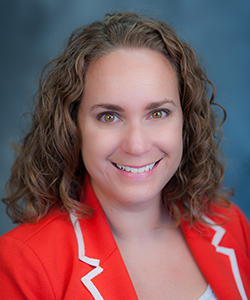Staci Zavattaro, University of Central Florida – Deathcare
 We’ve all heard a lot about death tolls in recent months.
We’ve all heard a lot about death tolls in recent months.
Staci Zavattaro, professor of public administration at the University of Central Florida, says people who work in this area are feeling the strain.
Staci M. Zavattaro, Ph.D., is a professor of public administration at the University of Central Florida. She serves as editor-in-chief of Administrative Theory & Praxis. Her current research focuses on death management in public service. Her book, City Sextons, is available now.
Deathcare
The work of deathcare never stops. Medical examiners and coroners work 24 hours a day, 7 days a week using science to help families find answers to a loved one’s death.
With the onset of the COVID-19 pandemic in 2020, their workload did not slow down.
Deaths related to the virus itself were only part of the problem. According to my research the suicide and overdose rates almost everywhere are up – more pandemics needing attention.
One coroner in Washington State said they had 40 suicides in 2020, up from 20 in 2017. When I asked why, she said you “can’t dismiss COVID” because people are lonely, isolated, and lack community support. This is how the public health aspect of their roles come in – figure out if there are patterns in death and sharing those to improve the lives of the living. That is how we got seatbelts.
Another coroner in Ohio said not accurately tracking death-related data can hamper these public health aspects. In his jurisdiction, every overdose death is associated with a ZIP code so public health officials can map problems and target interventions.
But the medical examiner and coroner systems in the U.S. are strained – and have been for decades. According to one Department of Justice study in 2013, medical students are not choosing forensic pathology, leading to a nationwide medical examiner shortage still ongoing today, with approximately 500 forensic pathologists practicing for the entire country.
With new virus variants emerging, deathcare workers will be on the frontline just as healthcare workers. As one manager of a medical examiner facility in Minnesota said to me, “People think healthcare stops at death and it doesn’t.”


